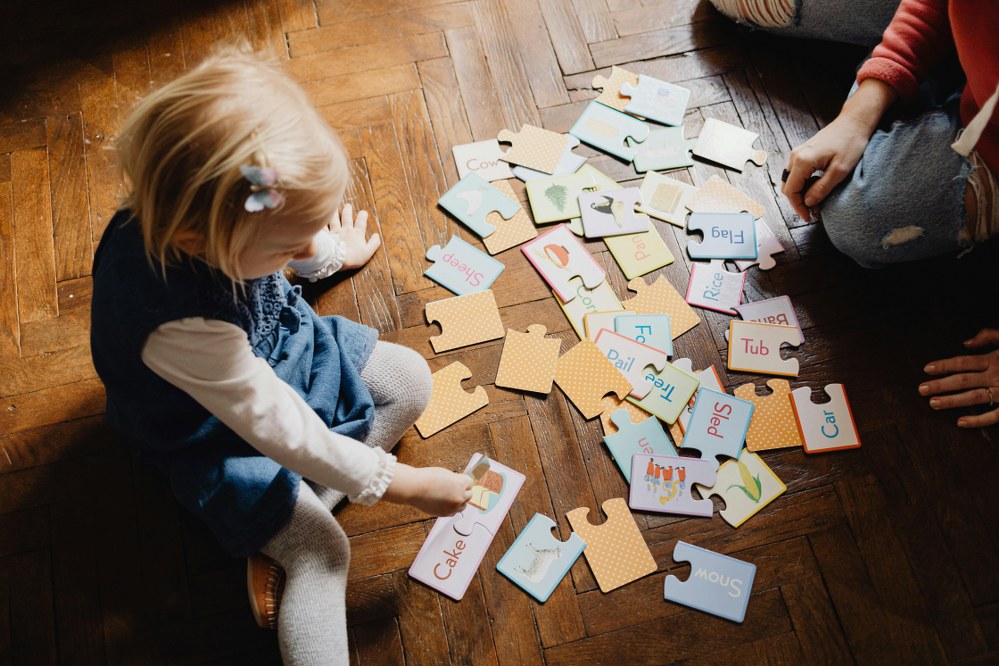Whilst most parents send their children to nursery or kindergarten for childcare, many think further ahead: Nurseries and kindergartens prepare children for school by providing the opportunity to interact with peers and learning through play, developing social, emotional, and cognitive skills. Early reading skills are particularly important and form the foundation of their academic journey. But how do educators teach children to read at such an early age, and how can parents help them? Whether you are a nursery schoolteacher, a parent, or a single parent with little time on their hands, if you want to support your kindergarten students with a literacy programme, you need to understand reading skills basics, starting with phonemes, phonics, and sight words:
Phonemic Awareness
A journey to becoming a confident reader starts with phonemic awareness: When planning reading for kindergarten, you can include activities that help students hear, recognize, and use different sounds in spoken words. Individual sounds are nothing but phonemes. If you take a word, such as ‘cat’ or ‘dog,’ each contains three phonemes: ‘c’, ‘a’, ‘t’, and ‘d’, ‘o’, ‘g’, respectively. As soon as kids become familiar with these elements, they can easily learn new words.
Creating phonemic awareness in young children is also essential to help them become good listeners. As their grasp of phonemes increases, their phonemic awareness skills become strengthened. When they learn to combine this knowledge with phonics, it further enhances their vocabulary.
Phonics Skills
School curricula now place more emphasis on the need for young children to learn phonics. After all, the benefits of reading simply cannot be emphasized enough. In the US, the Science of Reading has been the driving force behind the research into the best teaching methods to help children become successful readers, and phonemic awareness and phonics are two of the “5 big ideas” they believe teaching early reading skills should be based on. Interestingly, the development of phonemic awareness and phonics skills is interlinked.
Phonics is a teaching system that explains how written letters represent the sounds in spoken words. The sounds in a word are called phonemes, and the written letters that represent them are called graphemes. During the initial stages of learning to read, children often have difficulty improving their phonics skills. If you don’t engage them in this, they won’t be able to read printed words.
To be precise, phonics instruction is essential for early readers as it helps them decode even unknown words. It also enables them to blend words. The more they practise this, the better they become at this skill. To support them, you can use decodable texts and books. Give them materials that include familiar phonics patterns.
Sight Words
These are among the first words that nursery school kids need to grasp and recall automatically. They are nothing else but high-frequency words that children should remember instantly “by sight”. Examples include ‘but’, ‘the’, and ‘is’. Children often face difficulty during this learning phase of reading because such words tend to be phonetically irregular. After all, letters can have different sounds in the English language. As a result, some children may not be able to read or spell them correctly straight away. One way of teaching sight words is to read simple books where these can be learnt through the context in the story.
The Importance of Developing Children’s Reading Skills
Your child’s reading skills lay the foundation for their success in all areas of their life. For single parents it’s often particularly hard to find the time and energy to read with their children after a long day at work. But every minute spent reading together aloud, playing sound and letter games, or helping your children improve their reading skills in other ways is time well spent. Encouraging a love of reading and books can become a wonderful shared lifelong passion.
When children read well, their writing skills improve, they become confident in the way they express themselves, and they are able to tackle other problems with faith in their ability. Reading opens doors as it unlocks access to information and knowledge, enables children to learn and think independently, and, of course, communicate with others. In fact, research shows that reading a lot at a young age, whether for pleasure or study, means higher grades, better social skills, and happy and confident children.
Hence, it’s crucial for teachers and parents to use the right materials and resources to teach reading skills as early as nursery school. By exposing children to phonemes, phonics, and sight words through fun activities, lessons, and games in their early years, they prepare them for a bright future.



